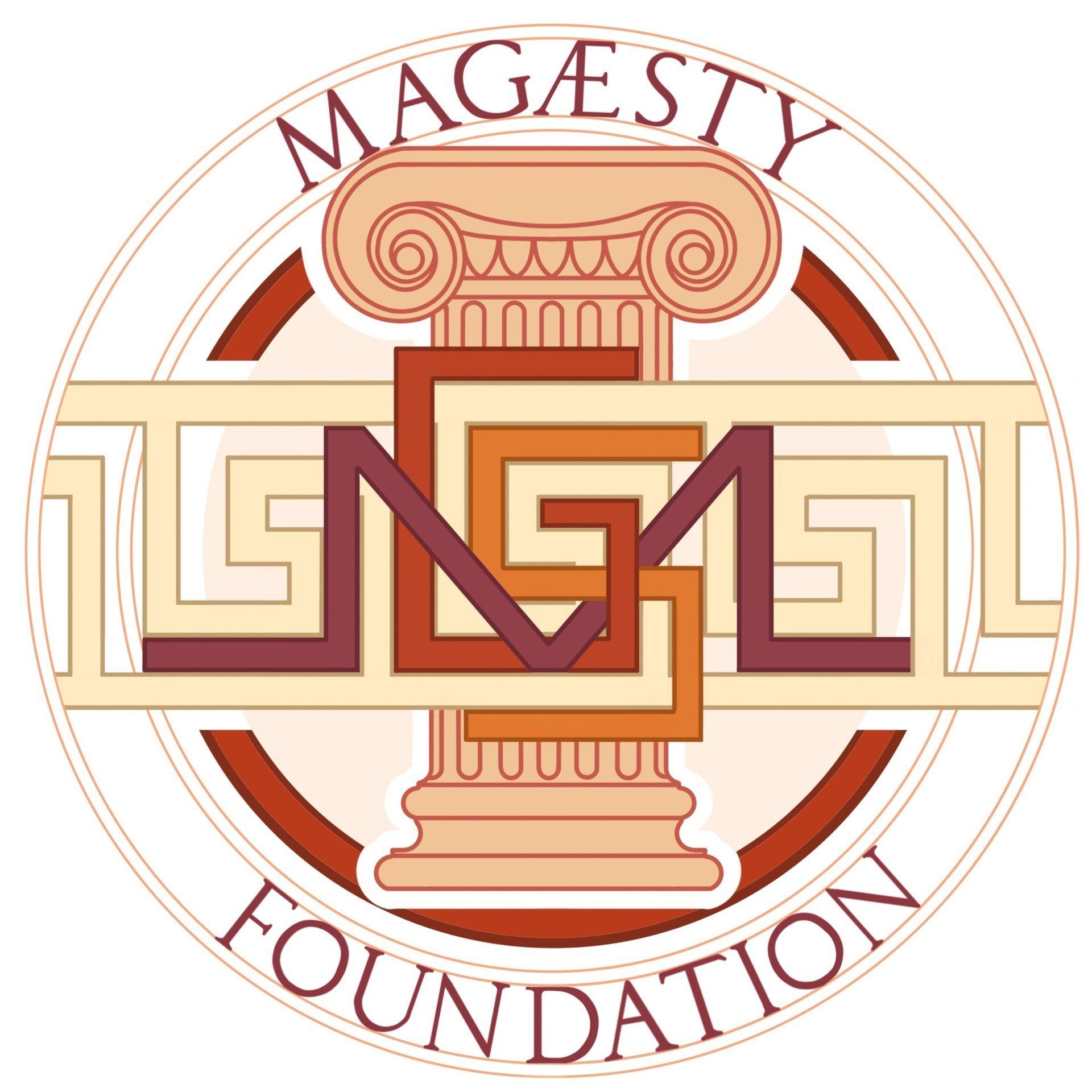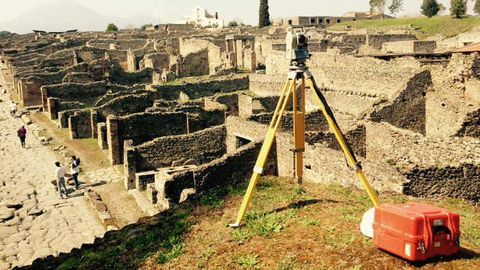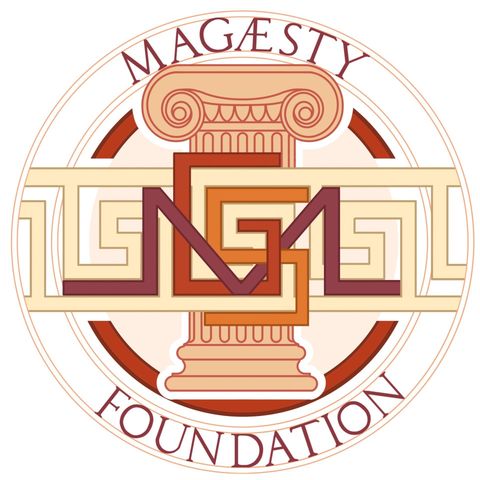MAGAESTY Foundation Statute
Art. 1 A Foundation for Historical and Archaeological Studies of Magna Graecia called MAGAESTY Founfation, in short MAGESTY, has been established. The Foundation operates in the following sectors: Art, Archeology and History Design, Research and Scientific Dissemination Education, Education and Training Enhancement, Protection and Conservation of the cultural heritage consisting of artistic, environmental and intangible assets Tourism and cultural promotion Volunteering and Philanthropy Scope: Calabria Region Art. 2 - Headquarters The Foundation is based in the regional capital. in Catanzaro, in via Leonardo Gallucci n. 7 Art. 3 - Mission and principles The aforementioned is a philanthropic-cultural foundation, a non-profit organization that pursues aims of social interest. It was born with the intention of developing, promoting and supporting study, research, enhancement and conservation activities related to the History and Archeology of Magna Grecia in a wide chronological span and in an extensive area limited to the territory of the Calabria Region. The objectives set by the foundation are primarily the support of research activities by young scholars and researchers and the promotion of these studies aimed at rediscovering their socio-cultural, linguistic, food and religious roots, to awaken attention of countrymen on the peculiarities that this territory possesses by promoting it even outside our borders. The Foundation aims to implement the cultural and tourist offer related to the cultural heritage that Magna Graecia offers. Finally, the Foundation wants to propose itself as a center of aggregation and catalyst of interests spread in the various territories (constituted for example in associations or groups of enthusiasts) in order to build a coordination network that facilitates the dissemination and implementation of the various research-related initiatives. archaeological and the study of the history of the uses and customs of our society. The three principles on which the Foundation is based are: 1) plurality, 2) interdisciplinarity, 3) scientificity. Plurality - the Foundation addresses a variety of sectors and a variety of audiences in order to ensure maximum cooperation between the parties and the full enjoyment of forms of knowledge and innovation. Interdisciplinarity - the Foundation acts by ensuring relationships of integration and interaction between different disciplinary sectors in order to guarantee a scientific and specialist approach. Scientificity - the Foundation uses scientific methodology and tools that ensure its authoritativeness and rigor. Art. 4 - Modus operandi The Foundation can take any initiative and implement any act suitable for pursuing its mission, in particular it works through the following actions: - Supporting, promoting and / or carrying out study, research, analysis and communication activities of the results of said research in the scientific and popular field, training, education, design, programming and documentation in the field of archeology and related and related disciplines. - Organize and promote seminars, conferences, workshops, cultural meetings, cultural and professional training courses, and any other activity related to the institutional purposes of the Foundation. - Promote and plan awareness campaigns especially aimed at young generations through updated and integrated forms of scientific and cultural communication. - Encourage and encourage the involvement of schools through educational workshops, training activities, school projects, guided visits and on-site inspections. - Set up and take care of exhibitions and exhibition activities also of an interdisciplinary nature to develop the encounter between history, science, art and technology. - Implement and favor editorial initiatives, both in paper and digital format, such as scientific publications, catalogs, archaeological plants, conference proceedings, magazines, periodicals, information brochures, audiovisual products, audio guides, photographic and planimetric reconnaissance. Establish and rearrange archives; to preserve and disseminate bibliographic sources that would otherwise not be usable. - Develop digital databases for the collection and use of the didactic, informative and bibliographic material inherent to the history and archeology of Magna Graecia, object of the mission. - Rearrange, catalog, inventory and disseminate historical-archaeological finds of Magna Graecia. Manage databases relating to goods, contexts, monuments and archaeological sites. - Promote technologies for the installation and conservation of museums, popular traditions and minor arts for the purpose of preserving them, also by organizing exhibitions of a historical, artistic and documentary nature. - Promote technologies for archaeological excavations, for art workshops also aimed at restoration. - Ensure the protection and enhancement of the archaeological, monumental, historical, artistic and cultural, public and private heritage, ensure the enhancement of the sector of demo-ethno-anthropology and the intangible heritage. - Identify, ascertain and report sites of historical-archaeological interest, promote and manage archaeological fields in collaboration with the Superintendencies of Archeology, Fine Arts and Landscape, carrying out activities that are not in contrast or in opposition to the directives of the Superintendencies themselves, making use, where it is necessary, the voluntary activity of the participants in the Foundation. - Propose and manage additional and cultural services in general for the enhancement management, directly, in concession or in association, of archaeological parks, museum centers and cultural centers for the qualification of the cultural and tourist offer. - Develop communication, information and tourism-cultural promotion systems. - Promote the development of new historical-archaeological investigation and conservation technologies. - Support the development and / or implement innovative and technological systems (e.g. social networking, augmented reality, audio / video-guides) for the enhancement and use of historical and cultural resources. - Support local institutions and professionals from other disciplines in planning and implementing urban works, in coordinating the specific actions planned on archaeological heritage and carrying out, in concert with other professional figures, support activities in the interpretation and landscape organization of the territory. - Establish collaborations and stipulate agreements with research institutes, universities, cultural bodies, associations and other foundations that share the aims and objectives of the mission. - Enter into agreements with companies and public or private entities, enter into agreements for the assignment of studies, research or part of the activities connected and instrumental to the pursuit of the purposes referred to in the previous article. - Establish, acquire, hold or assume, directly or indirectly, participations and interests in companies of any type, associations or foundations, consortia or entities with similar purposes, connected or similar to their own and in any case compatible with the achievement of the social purposes of the Foundation a non-profit purpose, but for the sole purpose of pursuing one's mission. - Acquire and transfer, even under license, trademarks, patents and other proprietary rights inherent to the activity carried out. - Establish Foundation offices and branches in Italy and abroad - Start fundraisers to support the activities planned by the foundation. - Promote and organize other types of initiatives aimed at achieving the goals of the foundation. Scholarships and institutions of prizes are also admitted and foreseen to be awarded to young scholars whose field of interest is consistent with the mission of the Foundation. Art. 5 - Collaborations The interdisciplinary research and study conducted within the Foundation's mission also make use of cooperation with other institutes. To pursue its aim, the Foundation is called upon to maintain relationships with Local Authorities, Superintendencies, Museums, Historical and Archaeological Parks, Study Centers, Universities, Schools, National and International Cultural and Research Institutions, through partnerships and conventions, Foundations and Associations operating in the same field and territory of interest. The Foundation makes available to local communities, institutions and scholars professionalism, different skills and tools, to identify new ways of promoting, conserving, using, including tourism, studying and managing historical-archaeological, cultural and environmental resources. - landscapes of Magna Graecia. Art. 6 - Heritage - The Foundation's assets are made up of: - the endowment fund made up of the assets conferred by the founder; - movable and immovable property which will reach the Foundation in any capacity, including those acquired by the Foundation in accordance with the provisions of this Statute; - from donations made by Bodies or by private individuals with express destination to increase the assets; - the annual dues and liberal donations of any Benefactors, Supporters and Participants, as specified in art 14; - from contributions attributed to the endowment fund by the State, by Territorial Bodies, by other Public and / or private Bodies; - the income and proceeds from the Foundation's assets and activities; - any other contributions attributed by the State, by Territorial Bodies or by other Public and / or private Bodies; - revenues from institutional, ancillary, instrumental and related activities. - The Foundation may also acquire publications, such as periodicals or monographs for the purpose of establishing both a physical and usable online library. It can acquire or manage finds of historical-archaeological interest, of public or private origin for exclusively cataloging, museum, educational and popular purposes. You can dispose of the aforementioned goods even as a use without owning them. - The Foundation can administer and manage the movable and immovable property of which it is the owner, lessor, borrower or in any case owned. Any proceeds from the use of movable and immovable property must be reinvested to pursue the purposes of the Foundation. - The Foundation may proceed with the sale of assets belonging to the assets only in order to support the running costs of the institutional activity. - The Foundation may also carry out all the securities, real estate, commercial and financial operations necessary or useful for the pursuit of its institutional purposes. Art. 7 - Funds and Fundraising For the fulfillment of its duties, the Foundation may receive contributions intended to support management costs or specifically aimed at financing particular initiatives falling within its institutional purposes. It is also planned to raise funds through voluntary, pecuniary or instrumental donations, or through promotional campaigns, the sale of periodical or monographic publications, the sale of gadgets, creations, on the subject of Archeology of Magna Graecia, through educational and training projects, workshops , popular events, organization of conferences, for which contributions from public or private sponsors, exhibitions, events, organization of summer courses, school camps, guided tours, excavation campaigns can be used. It can also access projects for public and private assignments for: - historical-archaeological surveys, field surveys, study, research, promotion, use, dissemination and conservation of archaeological, material and intangible assets; - design, direct, organize and carry out research and topographical interpretation and anthropic landscapes, also with the help of applied technologies and the contribution of related sciences, aimed at their identification, reconstruction and identification of contexts and archaeological sites; - tourist and cultural enhancement management of Environmental, Monumental and Cultural Heritage; - and anything else consistent with the purpose of the Foundation. Art 8 - Foundation Bodies - Foundation Bodies are: - the President of the Foundation; - the Vice President, if appointed; - the Audit Body if it is decided to appoint him. -Art.9 - Powers - The President is a lifelong assignment, he has the legal representation of the foundation with all the powers relating to the ordinary administration of the same, including that of appointing a Vice President for life and the prosecutors, determining their powers and delegations. - The President presides over relations with the authorities and public administrations. - The President signs the documents and what is necessary for the explanation of all the affairs that are deliberated; monitors the good administrative performance of the foundation; ensures compliance with the statute and promotes its reform if necessary. - The President has the right to appoint a paid legal adviser for professional services - The President can appoint a paid administrative secretary for professional services; - has the right to appoint - by choosing it from among the members for life -, in the event of the death or resignation of the current President, the new President, as well as any Vice Presidents, the Scientific Director, the auditing body; -If the President is absent or impeded, the Vice President, if appointed, takes his place. -Art. 10 - Replacement - To perpetuate the founder's understanding, the President has the power to appoint his replacement, chosen from among the relatives within the third degree, who will take office within 30 days of resignation, permanent impediment or death. -In the case of absence of relatives within the third degree, the deputy will be the Vice President, if appointed. -Art 11 - Composition, appointment and Functions of the Board of Auditors or Single Auditor The President has the right to appoint a Board of Auditors or a Single Auditor; The Board of Auditors is made up of three effective members and two alternates and remains in office for five years. The Board of Auditors or the auditor supervises the administration of the Foundation and the keeping of the accounts. It examines the draft financial statements and expresses its observations in a specific report which is sent to the Board of Directors together with the draft itself. -Art 12 - Financial year The Foundation's activity will be organized on the basis of annual and multi-year programs. The Administrative Body is responsible for: - approving the budget by September and the final balance by April. - the work program is attached to the budget; the financial year runs from January 1 to December 31 of each year; - to take care of the management of ordinary and extraordinary income as well as the distribution of the annual income of the budget among the various initiatives that constitute the purpose of the foundation; - to approve any internal regulations. -At. 13 - The Directors and the scientific committee The President appoints: - a highly qualified Scientific Director who has the task of taking care of relations with Superintendencies, Museums, Study Centers, Universities, Schools, National and International Cultural and Research Institutions to promote and pursue the scientific purposes of the Foundation. The Scientific Director remains in office for three years, can be reconfirmed. - an Executive Director / Studies, in the figure of a qualified researcher / scholar, expert in the sector inherent to the mission, who will have the task of implementing the Foundation's objectives by directing the technical-operational activities and implementation projects. It will also be responsible for evaluating and selecting the projects to be supported or implemented. The assignment lasts three years, can be reconfirmed and is remunerated for professional and / or project work. - an Editorial Director, who chairs the editorial board, remains in office for three years, can be reconfirmed. A Scientific Committee, chaired by the Scientific Director, is created ad hoc, for the awarding of scholarships and prizes; it includes: the President, the Scientific Director, the Executive Director and the Editorial Director. In addition, an Editorial Committee, with experts in the sector and headed by the Editorial Director, is foreseen for editorial initiatives -Art. 14 - Participants in the Foundation and Committees Participants in the Foundation and are required to pay the annual fee established by the administrative body: - The Benefactors, those who upon acceptance of the application for membership, contribute to the purposes of the Foundation with the contribution deliberated by the body administrative. These are constituted in a Committee chaired by the President and take part in the decisions concerning the projects to be financed. - Supporters those who, upon acceptance of the application for membership, contribute to the purposes of the Foundation with the contribution deliberated by the administrative body. The Supporters are constituted in a register and are constantly informed of every activity of the Foundation and will receive all the publications. - Adherents those who, upon acceptance of the membership application, contribute to the purposes of the Foundation with the contribution deliberated by the administrative body. - Volunteers, who lend their work free of charge to the Foundation, are not required to pay the annual fee. - All participants can access the premises and structures of the Foundation, consult archives, libraries and documentation centers, so as not to prejudice institutional activity. They can participate free of charge in the initiatives and training courses and are entitled to receive periodical publications. --Art. 15 - Postponement - For anything not provided for in this statute, the applicable provisions of law apply, insofar as applicable.







